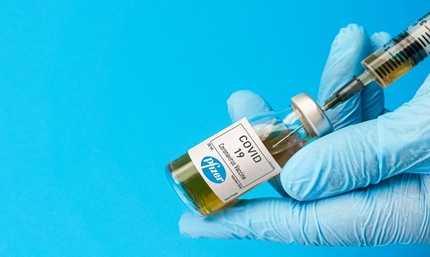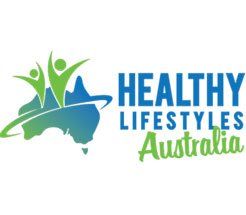Covid-19 Updates and Vaccinations

Comirnaty (Pfizer Australia Pty Ltd) is a vaccine that can prevent people from becoming ill from COVID-19. Comirnaty does not contain any live virus, and it cannot give you COVID-19. It contains the genetic code for an important part of the SARS-CoV-2 virus called the spike protein. After getting the vaccine, your body makes copies of the spike protein. Your immune system will then learn to recognize and fight against the SARS-CoV-2 virus, which causes COVID-19. The genetic code is then broken down quickly by the body.
To prevent COVID-19, everyone aged 16 years and older should get vaccinated, with a few exceptions specified in this information sheet. Vaccination is voluntary.
You can discuss any concerns or questions you have about COVID-19 vaccination with your immunisation provider and/or your GP before you receive the vaccine.
Benefits of the vaccine
A very large clinical trial showed that Comirnaty is effective in preventing COVID-19 in people aged 16 years and older. People who had two doses of Comirnaty were about 95 per cent less likely to get symptomatic COVID-19 than people who did not get the vaccine. It was equally effective in people over the age of 65 years, as well as people with some stable pre-existing medical conditions.
Protection against COVID-19 starts from about 2–3 weeks after the first dose. While one dose may give some protection, it may only last for the short-term. Two doses will give optimal protection. No vaccine is 100 per cent effective, so it is possible that you can
still get sick from COVID-19 after vaccination. We do not know how long
the protection from Comirnaty will last. We will learn more about this
over time. We currently do not know how effective COVID-19 vaccines are at preventing spread of the virus. This means that SARS-CoV-2 could potentially still infect a vaccinated person. Even if they have no symptoms or only mild symptoms they could still pass it on to others.
This is why it is important to continue other preventative measures like:
- physical distancing
- hand washing
- wearing a face mask
COVID-19 testing and quarantine/isolation as required by your state/territory.
If you have been vaccinated with two doses of Comirnaty, you should still get a COVID-19 test if you have symptoms that meet testing criteria according to your local health authority (e.g. fever, cough, sore throat).
People aged 16 years and older can receive this COVID-19 vaccination.
Certain groups of people are prioritised to receive vaccines first because they are at higher risk of:
- Exposure to the COVID-19 virus, for example workers in border or quarantine facilities, a healthcare facility or aged-care facility, or
- Severe illness and death from COVID-19, for example are older or have underlying medical conditions.
Who should not receive this vaccine?
You should not receive this vaccine if you have had:
- Anaphylaxis (a type of severe allergic reaction) to a previous dose of the same
COVID-19 vaccine, or - Anaphylaxis after exposure to any component of a COVID-19 vaccine.
Precautions for vaccination
People with certain conditions may need additional precautions such as staying for 30 minutes of observation after having their vaccine or consulting an allergy specialist. Tell your immunisation provider if you have had:
- An allergic reaction to a previous dose of a COVID-19 vaccine or to an ingredient of the vaccine
- Anaphylaxis to other vaccines or to other medicines. Your provider can check to ensure there are no common ingredients with the COVID-19 vaccine you are receiving
- A mast cell disorder.
If you have a bleeding disorder or you are taking a blood-thinning medication (anticoagulant), tell your immunisation provider. Your immunisation provider can help determine whether it is safe for you to have an intramuscular injection, and help decide the best timing for injection.
Special circumstances to discuss before vaccination
People with weakened immune systems (immunocompromised)
People with immunocompromised includes those who have a medical condition that weakens their immune system. It also includes those who may be taking medications that suppress their immune system.
The Australian Government strongly recommends people with immunocompromised receive COVID-19 vaccination. Comirnaty is not a live vaccine. It is safe in people with immunocompromised.
People with immunocompromised, including those living with HIV, have a higher risk of severe illness from COVID-19, including a higher risk of death.
Clinical trials for Comirnaty did not include people with immunocompromised, except for a small group of people with stable HIV. We do not know if Comirnaty is as effective in people with immunocompromised compared to the rest of the population. It is possible that Comirnaty might not be as effective in people with immunocompromised as it is in the general population. It is important to continue other preventative measures such as physical distancing after vaccination.
Women who are pregnant or breastfeeding
Pregnant women should be routinely offered Comirnaty at any stage of pregnancy. If you are trying to become pregnant you do not need to delay vaccination or avoid becoming pregnant after vaccination.
Pregnant women with COVID-19 have an increased risk of severe illness and adverse pregnancy outcomes. Real-world evidence has shown that Comirnaty is safe for pregnant women and breastfeeding women. You can discuss the decision in relation to timing of vaccination with your health professional.
If you are breastfeeding, you can have Comirnaty. You do not need to stop breastfeeding after vaccination.
People with a history of COVID-19
If you have had COVID-19 in the past, tell your immunisation provider. Your provider may advise to wait for up to six months after recovery before having a COVID-19 vaccine. If you have ongoing illness from COVID-19, discuss the best timing of vaccination with your treating doctor.
Comirnaty and children
Comirnaty has only been provisionally approved for use in people aged 16 years or older, and cannot be given to younger people. Clinical trials are currently testing Comirnaty in older children but we do not yet have the results of this trial. The risk of COVID-19, especially severe disease, in children is lower than in older adolescents and adults.
Ensuring the safety of Comirnaty
Comirnaty and other COVID-19 vaccines have been developed quickly due to increased funding for vaccine research, and access to very large numbers of volunteers for research studies. A large clinical trial involving around 44,000 people confirmed Comirnaty to be safe and effective.
The Therapeutic Goods Administration (TGA) assesses all vaccines in Australia. This ensures that, in order for a vaccine to be approved, it is safe, effective and manufactured to a very high quality standard. A description of the process for approval of COVID-19 vaccines is available on the TGA website.
The safety of COVID-19 vaccines will be monitored continuously throughout the COVID-19 vaccination program.
There are reports of a very rare side effect involving blood clotting with low blood platelet count after receiving the COVID-19 Vaccine AstraZeneca. The COVID-19 Vaccine AstraZeneca vaccine is made in a different way. There is no evidence of this condition being linked to the Comirnaty COVID-19 vaccine.
You can report suspected side effects to your vaccination provider or other healthcare professional. They will then make a formal report on your behalf to your state or territory health department or directly to the Therapeutic Goods Administration (TGA).
If you would prefer to report it yourself, please visit the TGA website for information on how to report suspected side effects associated with COVID-19 vaccines.
Reference: health.gov.au/covid19-vaccines
Information about Astrazenecca Vaccines related to blood clot
Patient Information on thrombosis with thrombocytopenia syndrome
Updated as of - 30 June 2021 by ATAGI
AstraZeneca Vaccine and the COVID-19 vaccination program
The Australian Government receives advice and recommendations from the Australian Technical Advisory Group on Immunisation (ATAGI) about the AstraZeneca vaccine.
There has been a link between the AstraZeneca COVID-19 vaccine and a rare condition called thrombosis with thrombocytopenia syndrome (TTS). This condition appears to be more common in younger adults.
Comirnaty is the preferred COVID-19 vaccine for adults under 60 years of age at this time. However, adults under 60 years of age may still choose to receive the AstraZeneca COVID-19 vaccine if they have weighed up the benefits and the risks. Talk to your doctor or immunisation provider to help inform your decision.
All adults are recommended to be vaccinated against COVID-19. The risk of severe illness and death from COVID-19 progressively increases with age in older adults. This means that older adults will have a higher benefit from vaccination.
More information on what this means can be found at www.health.gov.au/covid19-vaccines
What is thrombosis with thrombocytopenia syndrome (TTS)?
This is a rare side effect of the AstraZeneca COVID-19 vaccine. It can be very serious and can cause long-term disability and death. Comirnaty (Pfizer) is not associated with a risk of TTS.
The condition causes thrombosis (blood clotting) and thrombocytopenia (low blood platelet counts). It is different from general clotting disorders such as deep vein thrombosis (DVT) or pulmonary embolism (PE). TTS can occur at different parts of the body, including the brain (called cerebral venous sinus thrombosis) and in the abdomen (idiopathic splanchnic vein thrombosis). The low level of blood platelets can potentially cause bleeding.
- Thrombosis is the formation of a blood clot, which prevents blood flowing normally through the body. While thrombosis is usually a normal response to prevent bleeding (e.g. following injury), in this case this process is abnormal.
- Thrombocytopenia is a condition in which you have a low blood platelet count. Platelets (thrombocytes) are blood cells that help blood clot. Platelets stop bleeding by clumping and forming plugs in injured blood vessels.
When does TTS typically occur?
TTS onset occurs around 4 to 42 days (most commonly 4 to 30 days) following vaccination with COVID-19 Vaccine AstraZeneca.
How common is TTS?
TTS is rare. It is currently estimated to affect about 1-2 per 100,000 people who receive the AstraZeneca COVID-19 vaccine. But for those under 60 years of age, the rate is currently estimated to be higher. These estimates will be updated as further information become available.
Are any groups more at risk of TTS?
The rate of TTS reported in Australia and overseas is higher in younger adults and it may be more common in women. However cases have also been reported in men and in older people. It is not yet clear if women are at higher risk. More women than men have been vaccinated in some countries as they are a large proportion of frontline healthcare workers and have been prioritised for vaccination.
Based on current information, we do not know if there are any pre-existing medical conditions that may contribute to developing TTS or make it worse if it occurs.
What symptoms does TTS usually cause?
If you experience the following symptoms after vaccination you should seek medical attention immediately:
A severe persistent headache with additional features:
- appears at least 4 days after vaccination
- does not improve with simple painkillers
- may be worse when lying down
- may be accompanied by nausea and vomiting
Neurological symptoms such as:
- blurred vision
- difficulty with speech
- drowsiness
- seizures
- shortness of breath
- chest pain
- swelling in your leg
- persistent abdominal (belly) pain
- tiny blood spots under the skin away from the site of injection.
Do the benefits of the AstraZeneca vaccine outweigh the risk?
Yes. The benefits of vaccination clearly outweigh the risks in many circumstances. This is particularly so for older people who have a higher risk of severe illness or death from COVID-19.
Cases of TTS have occurred in people of all ages. However, the risk of TTS appears to be lower in those aged 60 years and older than in younger adults.
For people under 60 years of age, Comirnaty (the Pfizer COVID-19 vaccine) is preferred. However, adults under 60 may still choose to have AstraZeneca vaccine after considering the benefits and risks of vaccination. The risks of dying or having severe disease from COVID-19 are generally lower in healthy younger adults and they have a higher (although still rare) risk of TTS after vaccination compared with older adults.
What if you are aged 60 and under and are booked in to receive your first dose of AstraZeneca?
If you are under the age of 60, Comirnaty (the Pfizer vaccine) is preferred for you. If you are booked in to receive your first dose of the AstraZeneca COVID-19 vaccine and you are younger than 60 years old, please talk to your health professional
How do people aged under 60 years book an appointment for the Pfizer vaccine? Where is it available?
The COVID-19 vaccination program has been modified in light of the ATAGI advice. More Pfizer vaccination sites will become available around the country in line with increasing supplies. You can check your eligibility and where to get a vaccine using the eligibility checker.
What if you have received your first dose of AstraZeneca and are due for your second dose?
People of any age without contraindications who have had their first dose of COVID-19 Vaccine AstraZeneca without any serious adverse events should receive a second dose of the same vaccine. UK data suggests that the risk of TTS is much lower after the second dose, with 23 cases reported to date out of 15.7 million second doses of the AstraZeneca COVID-19 vaccine given. This translates into an estimated rate of 1.5 cases per million second doses (compared to a reported risk of 14.2 cases per million first doses in the UK).
Are there any conditions which increase the risk of TTS?
There is a theoretical concern that a few rare conditions might increase the risk of TTS. These conditions are:
- Cerebral venous sinus thrombosis (a type of blood clot in the brain)
- Heparin-induced thrombocytopenia (a reaction to a medication called heparin)
- Idiopathic splanchnic thrombosis (blood clot in abdominal veins)
- Antiphospholipid syndrome with thrombosis
TTS is different to these certain rare conditions, although there are similarities between TTS and each of these conditions. As a precaution, people with a past history of any of these conditions are recommended to receive the Pfizer (Comirnaty) vaccine over the AstraZeneca COVID-19 vaccination at this time. The Pfizer (Comirnaty) vaccine is not associated with TTS.
Is the AstraZeneca vaccine safe in people who have had blood clots in the past?
If you have had other types of blood clots in the past, or if you have risk factors for blood clots, you can still have the AstraZeneca vaccine. There is no evidence that people who have had a past history of other types of blood clots have an increased risk of developing TTS or becoming more ill from it if it occurs.
People with the following conditions can receive the AstraZeneca COVID-19 Vaccine:
- History of blood clots in typical sites
- Increased clotting tendency that is not immune-mediated
- Family history of blood clots
- History of ischaemic heart disease or stroke
- Current or past thrombocytopenia (low platelet count)
- Those receiving anticoagulation therapy
The overall rate of blood clots has not risen in countries which have extensively used the AstraZeneca vaccine with millions of doses administered. Blood clots occur commonly in the population, and not all blood clots that occur after AstraZeneca COVID-19 will be caused by the vaccine. If you develop a blood clot after vaccination, your doctor can do blood tests to determine the cause.
For more information
Speak to your healthcare professional or vaccination provider if you have further questions about the AstraZeneca vaccine.
The TGA and ATAGI also advise that the following groups of people can receive COVID-19 Vaccine AstraZeneca:
- People with a past history of venous thromboembolism in typical sites, such as deep vein thrombosis or pulmonary embolism
- People with a predisposition to form blood clots, such as those with Factor V Leiden, or other non-immune thrombophilia disorders
- People with a family history of clots or clotting conditions
- People currently receiving anticoagulant medications
- People with a history of ischemic heart disease or cerebrovascular accident
- People with a current or past history of thrombocytopenia. Comirnaty (Pfizer) is recommended for people 16 years and above with:
- A past history of cerebral venous sinus thrombosis (CVST)
- A past history of heparin-induced thrombocytopenia (HIT)
- A past history of idiopathic splanchnic (mesenteric, portal and splenic) venous thrombosis
- Anti-phospholipid syndrome with thrombosis
- People with contraindications to COVID-19 Vaccine AstraZeneca, i.e. − Anaphylaxis to a previous dose of COVID-19 Vaccine AstraZeneca, or to an ingredient of the vaccine − Thrombosis with thrombocytopenia occurring after the first dose of COVID-19 Vaccine AstraZeneca − other serious adverse events attributed to the first dose of COVID-19 Vaccine AstraZeneca
Second dose risks of TTS/VIPIT/VATT/VITT UK data suggest that the risk of TTS is much lower with a second dose, with 15 cases reported to date out of 9.0 million second doses of COVID-19 Vaccine AstraZeneca given. This translates into an estimated rate of 1.7 case per million doses. ATAGI reinforces that people of any age who have had their first dose of COVID-19 Vaccine AstraZeneca without any serious adverse events can receive the second dose
Key Note
- COVID-19 vaccination is recommended for all people aged ≥16 years to protect against COVID-19.
- The overarching goal of Australia’s COVID-19 vaccination program is to protect all people in Australia from the harm caused by the novel coronavirus SARS-CoV-2, through preventing serious illness and death, and, as much as possible, disease transmission.
- Delivery of vaccine has been prioritised initially for the following population groups, as they are at increased risk of exposure to SARS-CoV-2 or of severe COVID-19, or are working in services critical to societal functioning: quarantine and border workers; healthcare workers at risk of exposure to persons infected with SARS-CoV-2; aged care and disability care staff and residents; older adults, initially those aged ≥80 years, with progressive vaccine delivery to those in lower age brackets; people aged ≥16 years with underlying medical conditions associated with an increased risk of severe COVID-19; Aboriginal and Torres Strait Islander adults and critical and high-risk workers, including defence, police, fire, emergency services and others.
- For more information please refer to the National Rollout Strategy and ATAGI Preliminary advice on principles of prioritisation for the COVID-19 vaccine.
- Comirnaty (Pfizer Australia Pty Ltd) is provisionally registered in people aged ≥16 years and is given in a two-dose schedule. Efficacy against symptomatic COVID-19 is about 95% after two doses.
- COVID-19 Vaccine AstraZeneca (AstraZeneca Pty Ltd) is provisionally registered in people aged ≥18 years and is given in a two-dose schedule. Efficacy against symptomatic COVID-19 ranges from about 62% to 73% with the higher efficacy seen after a longer interval (12 weeks) between doses. Efficacy from day 22 after the first dose up until 12 weeks is about 73%.
- Both vaccines have an acceptable safety profile in clinical trials and in surveillance with widespread use in populations overseas.
- In April 2021 COVID-19 Vaccine AstraZeneca was found to be linked with a rare condition involving blood clotting and low platelet levels, called thrombosis with thrombocytopenia syndrome (TTS). Current data suggest that although rare, the risk of TTS may be higher in younger adults than in older adults. Comirnaty is not associated with a risk of TTS.
- Comirnaty is preferred over COVID-19 Vaccine AstraZeneca in people aged <60 years, and is recommended in people with a past history of cerebral venous sinus thrombosis (CVST), heparin induced thrombocytopenia (HIT), idiopathic splanchnic (mesenteric, portal, splenic) vein thrombosis or antiphospholipid syndrome with thrombosis.
- Comirnaty should be routinely offered to pregnant women at any stage of pregnancy, and to women who are breastfeeding or planning pregnancy.
- There are currently no COVID-19 vaccines registered for use in children < 16 years.
- Co-administration of COVID-19 vaccine with other vaccines is not routinely recommended. A minimum 7-day interval is advised between administration of a COVID-19 vaccine and any other vaccine, including influenza vaccine. This interval can be shortened (including same day administration) in special circumstances.
- Recording of COVID-19 vaccine administration in the Australian Immunisation Register (AIR)
is mandatory. - Notification of adverse events following immunisation should be made to the Therapeutic Goods Association (TGA) and through the specified reporting mechanisms for your state or territory.
Patients Information Links:
- https://www.health.gov.au/news/atagi-statement-on-astrazeneca-vaccine-in-response-to-new-vaccine-safety-concerns
- Video
- https://www.health.gov.au/news/atagi-statement-on-astrazeneca-vaccine-in-response-to-new-vaccine-safety-concerns
- https://www.health.gov.au/initiatives-and-programs/covid-19-vaccines/learn-about-covid-19-vaccines/about-the-pfizerbiontech-covid-19-vaccine
- Eligibility Click her: https://covid-vaccine.healthdirect.gov.au/eligibility
- Preparing for COVID-19 vaccination
- Information on COVID-19 Pfizer (COMIRNATY) vaccine
- After your Pfizer (COMIRNATY) vaccine
- Information on COVID-19 Vaccine AstraZeneca
- After your AstraZeneca vaccine
- Patient information sheet on AstraZeneca COVID-19 vaccine and blood clot with thrombocytopenia syndrome (TTS)
Providers Information Links:
- COVID-19 Vaccine training
- Information for providers: COVID-19 vaccination consent and FAQs
- Information for immunisation providers on thrombosis with thrombocytopenia syndrome (TTS) following COVID-19 vaccination
- Provider guide to COVID-19 vaccination of people with immunocompromise
- Consent form for COVID-19 vaccination
- Guidance on the use of multi-dose vials for COVID-19 vaccination
- Product Information for Comirnaty available at the Therapeutic Goods Administration (TGA) website
- Product Information for COVID-19 Vaccine AstraZeneca at the Therapeutic Goods Administration (TGA) website
Shared decision guides:
- COVID-19 vaccination decision guide for women who are pregnant, breastfeeding, or planning pregnancy
- COVID-19 vaccination decision guide for frail older people, including those in residential aged care facilities
- COVID-19 vaccination decision guide for people receiving palliative or end-of-life care
- COVID-19 vaccination decision guide for people with immunocompromise
- COVID-19 vaccination – Weighing up the potential benefits against risk of harm from COVID-19 Vaccine AstraZeneca
- Additional resources are available at health.gov.au, including ‘easy read’ and translated versions of patient fact sheets.















